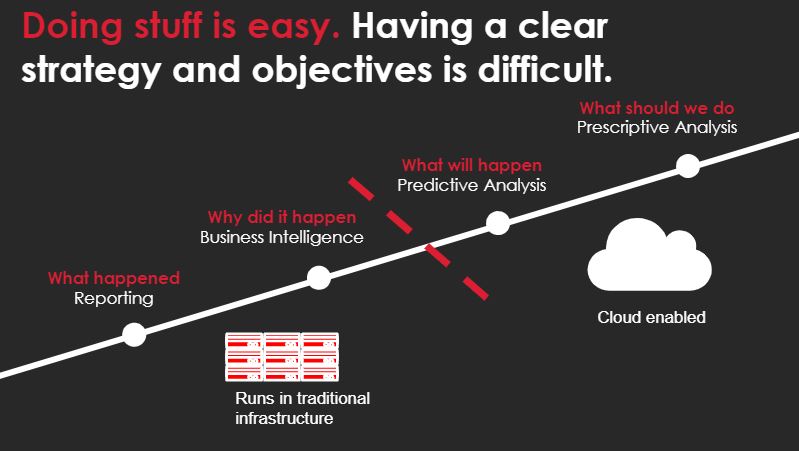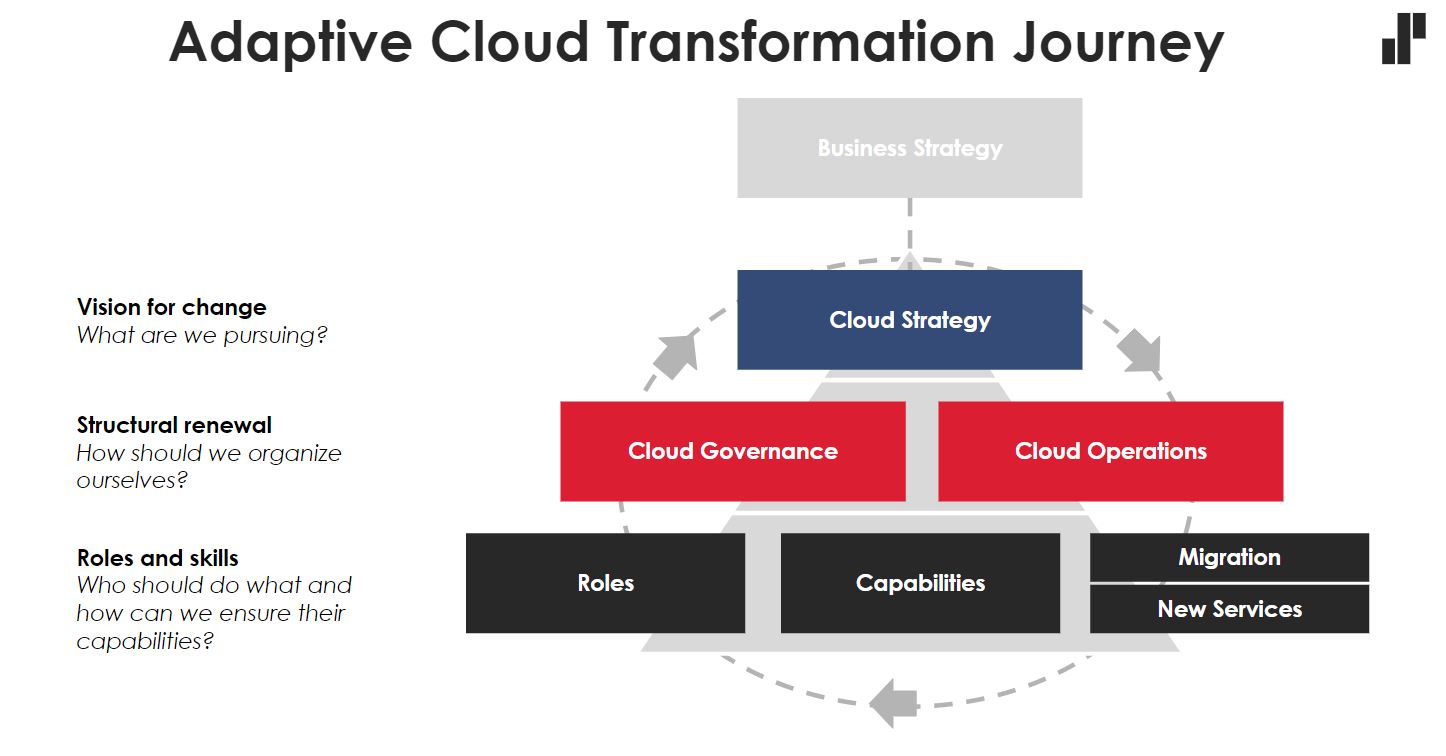
CxO You need to understand this about Cloud
It’s probably useless to start making more listings of the benefits of the cloud. There has been enough of those during the past 5 years. At the same time the digital transformation has been on the table of every CEO, CIO, CDO, CMO, etc. We can all agree that we need to have a modern data warehouses, make mobile solutions, be agile, create new digital services and utilize artificial intelligence. In the Cloud, these services can be taken for granted. However, I have noticed that companies and organizations don´t necessarily understand what the utilization of cloud really means and requires from you.
In order to embrace the full potential of modern techniques like AI/ML, IoT, Agile, DevOps, you need CLOUD to enable your IT to support Business at full scale
Why the platform matters?
Usually, technology is technology and should not be mixed with strategy discussions, but I think that the cloud makes an exception, at least next x years (I’m not going to predict). When advanced digital transformation companies are telling the story where data is the new oil and other possibilities of the new business opportunities, they seem to forget to mention the platform that makes it all possible. Without the cloud, flexible and scalable modern data platforms with AI and other innovative solutions fall short. You just cannot get that speed, ease of management and the variety of services from on-prem or “private cloud” solutions.

Problem is that Senior management may lack an understanding of how big change the cloud is for their organization especially for IT, how it tightly links to digital transformation and what kind of resistance it may create.
Still today, there are a number of large companies where their own IT department does not know how to properly utilize the cloud
Change resistance and skills gap leads to shadow IT
Still today, there are a number of large companies where their own IT department does not know how to properly utilize the cloud and, at worst, they deliberately slow down cloud-related projects. This is natural, you tend to resist things that are unknown and things that put you out of your comfort zone. For these reasons, things aren´t moving at the speed that business wants.
This can create a shadow IT inside the company, where business units start to acquire cloud solutions directly so that they do not have to struggle unnecessarily with un-matching solution offering and lack of capabilities of their own IT.
The key challenge here is that when you start to develop services in an environment where you haven´t built your foundation properly, the continuity and manageability of services you build, are at risk. Lack of centralized management entails unnecessary risks as eg. unmanaged users become a huge risk.
In this way, environments in the cloud by different business units and by different partners are created with no one thinking about the whole. IT has traditionally thought about these things, but now it has been ignored. IT’s concerns and resistance against these types of projects are genuine and valid. If they don’t have the skills to build cloud services, so how would business units have? Well, they have the courage and enthusiasm to go forward but they’ve not used to handle subjects related to continuity and manageability.
This leads to, as I have written previously, into cloud service mess and uncontrolled cloud.
Going to the cloud is a big change that needs to be better addressed and lead properly.
How could this be taken into account and handled better?
Communication
Effective internal communication is needed. When the strategy outlines that we are developing new digital services and ecosystems, it must be made clear that this means deploying new cloud services. This must be repeated! The issue mentioned in the management’s monthly letter is just not enough. Many times I’ve been in situations where the customer’s personnel have been told that they’re going to take the environment into the cloud, but no one has really understood what that really means.
Leading the change
When communication is in order, you need a leader with the power to act and understanding of the cloud. If going to the cloud is not managed properly and with a sufficient mandate, it is difficult to move things forward. Care must be taken to ensure that data center processes and architectures do not fall into the cloud. In the cloud, new ways of working are needed, and addressing this may sometimes require the use of powers.
Engagement and competence development
A good leader understands that know-how does not come from scratch and everything cannot be outsourced. So at the same time when it´s important to bring in knowledgeable partners in your projects, it is also to involve your own IT from the beginning. Existing competencies should also be mapped and based on this, form learning paths to the new cloud roles. A properly motivated old data center fox can be very eager to update their skills. Old knowledge and skills do not become obsolete overnight, they are only used differently.
Motivation
Going to the cloud is a big change for your staff, not just IT. Procurement and budgeting also change, contracts are different, etc. This can give rise to fears that one’s job is in danger and one’s skills are not enough. By encouraging competence development and rewarding achievements, a positive atmosphere is created where everyone has the same goal. This is not rocket science.
With these things in mind, we can start building a modern digital services platform that supports business and agile development.
Our adaptive cloud transformation framework helps you to do this without the need for a massive transformation project; it just ensures that all the things are taken into account.

The time span, needed resources, etc. are adapted to your needs and your situation.
Contact me if you are interested to learn more
Anton Floor
Cloud Advisor
anton.floor@solita.fi